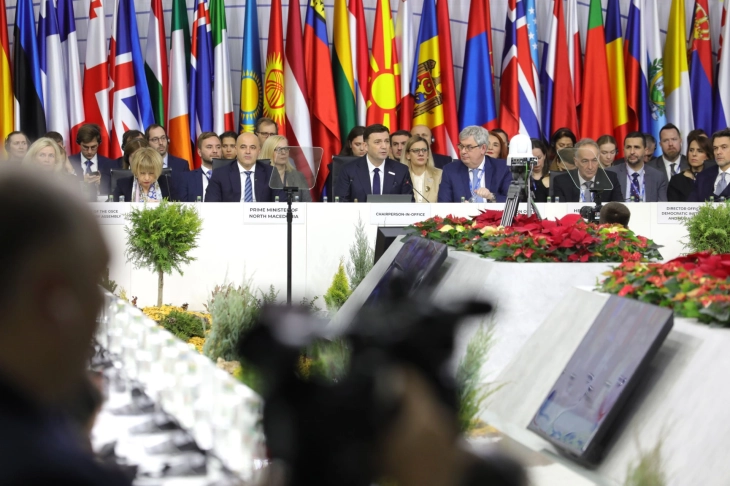In his remarks at the opening of the 30th OSCE Ministerial Meeting in Skopje, Bujar Osmani, the Chairperson-in-Office and Foreign Minister of Macedonia, delivered a message of hope and responsibility. He emphasized the challenges faced during their Chairmanship, notably the conflict in Ukraine that undermined trust and dialogue within the organization.
Osmani underscored the impact of Russia’s aggression on Ukraine, stating it not only violated the principles of the OSCE but also disrupted the platform for dialogue and problem-solving. He highlighted how divisions replaced cooperation within the organization, making consensus difficult to achieve and emphasizing the need for strategic clarity.
Despite these challenges, Osmani credited North Macedonia for maintaining the organization’s relevance and utility. He praised collective efforts that preserved the OSCE and emphasized the organization’s vital role in preventing conflicts and resolving disputes through multilateralism.
The Foreign Minister prioritized key areas such as climate change, cybersecurity, anti-corruption, gender equality, and youth engagement, asserting the OSCE’s adaptability in serving people and upholding the Helsinki Final Act.
Osmani stressed the importance of reinforcing the OSCE for the future, urging the active utilization of OSCE tools to foster greater security and stability. He emphasized the organization’s role as a platform for accountability during times of rising tensions and conflicts.
The 30th OSCE Ministerial Council hosted by North Macedonia in Skopje witnessed the participation of approximately 1,000 delegates from OSCE participating states and partner countries.





Comments are closed for this post.